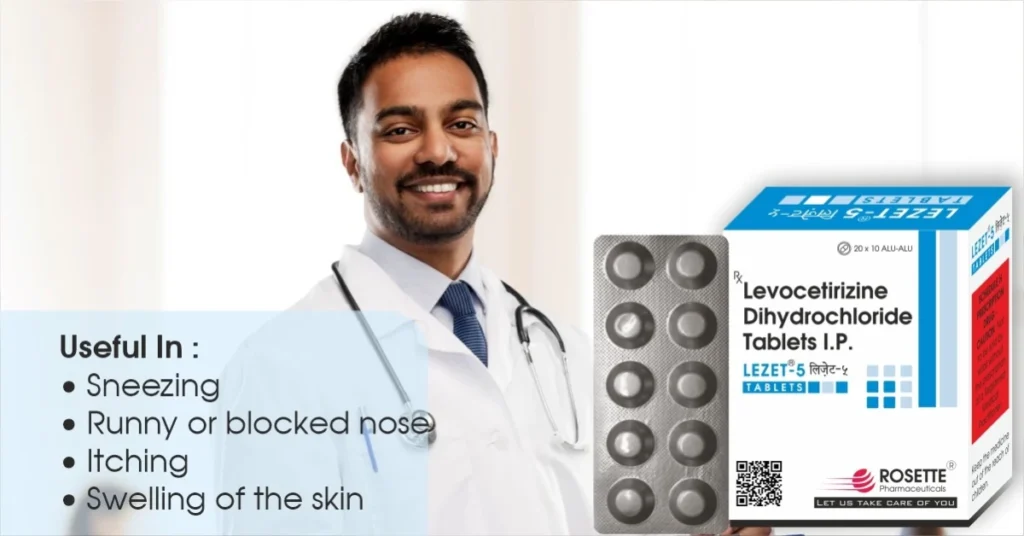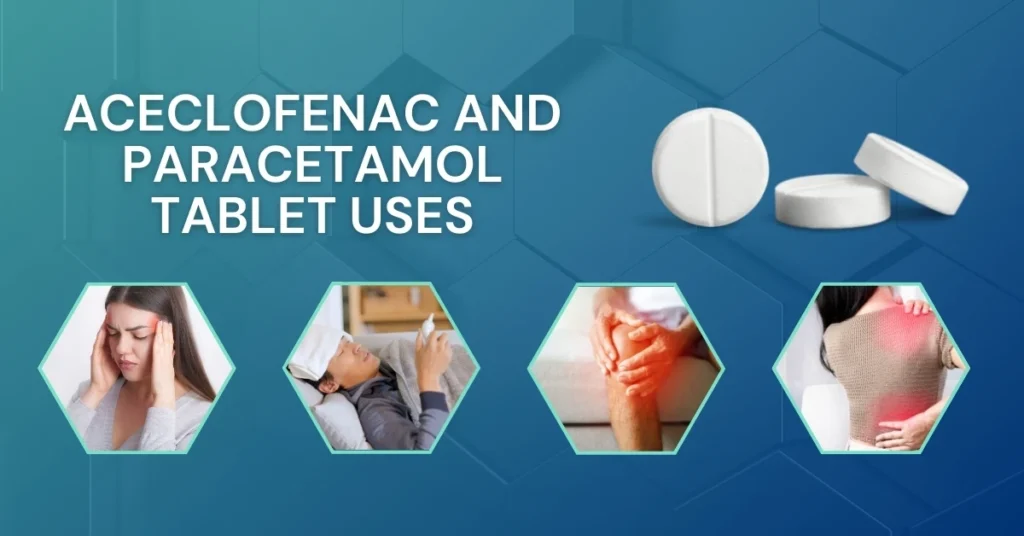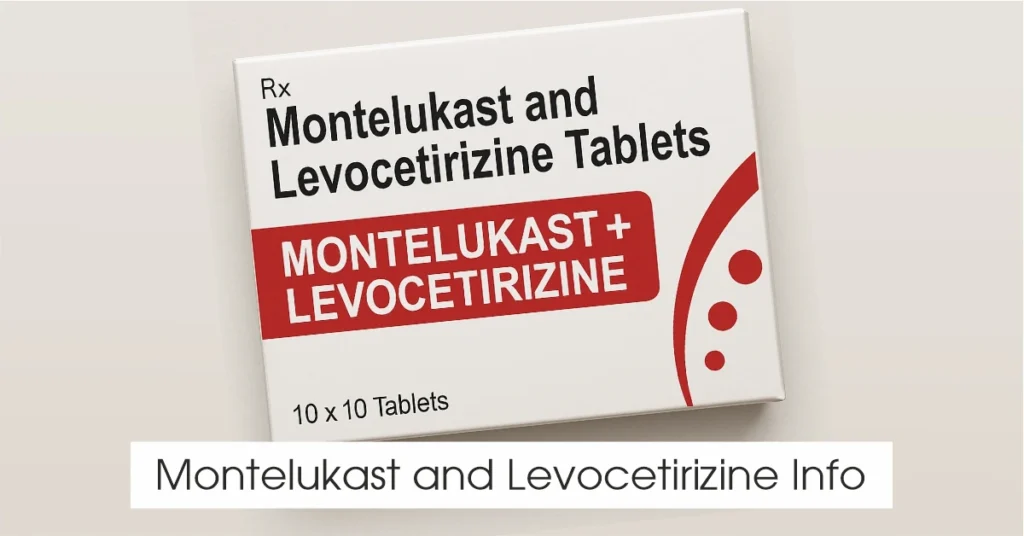If you often suffer from sneezing, a runny nose, or itchy eyes, you may be dealing with seasonal or skin allergies. One of the most commonly prescribed medicines for such symptoms is Levocetirizine, an antihistamine that helps block the chemical in your body responsible for allergic reactions.
Levocetirizine provides fast relief from symptoms like hives, skin rashes, and nasal discomfort, often with just one tablet a day. It is known for working quickly and causing less drowsiness compared to older allergy medicines. Whether you’re an adult or a child, this tablet is widely used to manage both mild and long-term allergies safely and effectively — but it’s always best to take it under a doctor’s guidance.
What Exactly Is Levocetirizine?
When I first came across Levocetirizine, it was recommended by a doctor as an antihistamine to reduce allergy symptoms like runny nose, sneezing, itchy or watery eyes, and sometimes even rashes or reactions from insect bites and stings. It’s available as an oral tablet or oral solution, and you’ll find it in both prescription and over-the-counter (OTC) forms.
The brand-name version you’ll most commonly hear of is Lezet, but the generic drug is called levocetirizine dihydrochloride. I’ve seen many patients prefer the generic option because it often costs less and still delivers the same relief.
What makes this drug effective is how it works. Levocetirizine blocks the action of histamine, a natural chemical in the body that can produce symptoms like hives, itching, and swelling. It is commonly used to treat year-round (or perennial) allergies in both adults and children who are at least 6 months old.
It’s also helpful in managing chronic, long-lasting urticaria—a fancy term for those recurring hives that many people struggle with. What I appreciate is its versatility—whether you’re dealing with seasonal sniffles or persistent skin issues, Levocetirizine has been FDA approved since 2007, making it a trusted choice across various cases and strengths.
Mechanism of Action
Levocetirizine is a trusted drug that belongs to a class of drugs known as antihistamines. This group of medications is often used to treat conditions related to allergies, and they all work in a similar way. From my experience with patients, especially those struggling with seasonal triggers, Levocetirizine stands out for how quickly and gently it manages symptoms without heavy sedation. It’s part of a modern class that targets symptoms while keeping alertness intact.
This medicine works by blocking the release of a chemical called histamine from certain cells in the body. Histamine is what causes classic allergy symptoms like sneezing, runny nose, red, watery, and itchy eyes. What’s more, the drug also helps relieve itching caused by hives, making it useful in chronic skin conditions too. Its ability to relieve both respiratory and skin-related symptoms makes it a reliable option for comprehensive allergy care.
How It Moves Through the Body
Once taken, Levocetirizine is absorbed quickly by the body, reaching peak levels in the blood within about 0.9 to 1.3 hours. Its bioavailability is impressively high—close to 100%, which means almost all of the drug reaches your bloodstream and starts working effectively.
In my clinical experience, this fast and complete absorption is one reason why patients often report quick relief from symptoms. Whether taken with or without food, the body’s ability to absorb Levocetirizine remains stable, making it convenient for everyday use.
As for how it’s broken down, Levocetirizine undergoes very minimal metabolism. Only a small percentage of the drug is processed by the liver—most of it stays in its original form. This is particularly useful for patients with liver concerns.
The majority of the drug is eliminated through the urine, and its elimination half-life is around 8 to 10 hours, meaning the medicine stays active in the body long enough for once-a-day dosing. This predictable pathway of absorption, limited metabolism, and reliable elimination makes it one of the most user-friendly antihistamines available today.
When and Why Levocetirizine is Prescribed
Levocetirizine tablets are mainly used for treating allergies and related symptoms. In my experience with patients of different age groups, this anti-allergy medicine works best when taken consistently as per the doctor’s advice. It helps manage allergic conditions like runny nose, watery eyes, itching, redness of the skin, and seasonal rashes.
People with sensitivities to molds, fur, or even insect bites and stings also find relief from burning or swollen skin reactions using this tablet. For chronic hives, it’s often a go-to prescription due to its mildness and effectiveness across different types of allergies.
A person should take the tablet exactly as prescribed by the doctor. It is important to avoid an overdose, as taking it for a long time without guidance may increase the risk of developing side effects. Always check the label and follow the instructions for safe use. It’s typically taken at night after food, but can also be consumed with or without food, preferably at a fixed time.
For a child, always measure the correct dose using a measuring spoon or cup. The dose can vary among people, depending on symptoms and age, so consulting a doctor for proper dosage is strongly advised. Make sure to swallow the Levocet Tablet whole—do not chew, crush, or break it.
Dosage and Administration
Levocetirizine should always be taken as directed by a doctor, depending on the patient’s age, medical condition, and kidney or liver health. Below is a general guide based on common prescriptions:
| Age Group | Indication | Recommended Dose | Frequency |
|---|---|---|---|
| Adults & Adolescents (12+) | Allergic rhinitis, urticaria | 5 mg | Once daily |
| Children (6–11 years) | Seasonal/perennial allergies | 2.5 mg | Once daily |
| Children (6 months–5 yrs) | Only if prescribed | 1.25 mg | Once daily (oral drops) |
| Elderly patients | Use with caution | Based on renal function | As advised |
Possible Side Effects
Like any medication, Levocetirizine can cause side effects, though many are mild and short-term. In my experience, most people tolerate the oral tablet well, but some may still experience unwanted effects—especially during the first few hours after they take the drug. These effects can vary according to age, with children and older adults reacting differently.

It’s important to tell your doctor if symptoms feel severe, do not go away, or seem unusual. Some reactions may even require you to stop taking the medication and seek immediate medical help.
Common Side Effects (may include and differ by age group):
- Sleepiness, drowsiness, tiredness, fatigue
- Dry mouth, parchedness, sore throat, discomfort
- Fever, cough, nasopharyngitis, nosebleed
- Diarrhea, vomiting, constipation, ear infections (especially in children)
- Rashes, itching, burning, and red spots on the skin
- Weakness or feeling low in energy
Seen more in children ages 6–11 months, 1–5 years, and older adults
Serious Side Effects – Call Your Doctor Immediately
- Hives, rash, itching that spreads all over the body
- Swelling of arms, hands, feet, ankles, lower legs, lips, tongue, face, or throat
- Signs of allergic reaction
- Blurry vision
- Trouble urinating, changes in amount of urine, or blood in urine
- Symptoms that are life-threatening or require emergency care
Note: For anything persistent or serious, always consult your doctor without delay.
What You Should Know Before Taking Levocetirizine
Before taking levocetirizine, it is very important to tell your doctor or pharmacist if you’re allergic to cetirizine (commonly known as Zyrtec) or any other medications, whether prescription, nonprescription, or even herbal products, vitamins, or nutritional supplements.
You should also mention any medical conditions like kidney disease, an enlarged prostate, or if you’re pregnant or planning to become pregnant. Call your doctor immediately if you become pregnant while taking levocetirizine, and do not breast-feed unless advised by your doctor.
This medicine can make you drowsy or tired, so it’s best to avoid driving, operating machinery, or using heavy tools until you know how it affects you. Alcoholic beverages can add to the drowsiness caused by levocetirizine, so always ask if it’s safe for you to consume alcohol while on this drug. The medicine may also cause urinary retention, which means reduced frequency of passing urine, or pain and difficulty during urination—if that happens, consult your doctor without delay.
Allergy & Interaction Warnings
Some people may have a severe allergic reaction after taking levocetirizine, especially if they’ve reacted to it in the past. Symptoms may include rash, itching, hives, or swelling of lips, face, tongue, or throat. For mild signs, call your doctor for proper treatments to manage the symptoms. For life-threatening reactions like breathing issues, seek immediate medical care. If you’ve ever had such a reaction, the doctor may stop the medication permanently because continuing it could be fatal.
This warning is even more important for people with kidney disease or those undergoing hemodialysis, as the drug stays longer in their body, increasing the risk of side effects.
For older adults, the kidneys work more slowly, which also leads to slower drug processing. Children younger than 6 months of age should not be given levocetirizine, as it is not confirmed to be safe or effective for them according to available studies in animals and humans.
Comparison with Other Antihistamines
| Feature | Levocetirizine | Cetirizine | Loratadine |
|---|---|---|---|
| Generation | Second-generation | Second-generation | Second-generation |
| Potency | Higher (active enantiomer of cetirizine) | Standard | Moderate |
| Onset of Action | Within 1 hour | Within 1–2 hours | 1–3 hours |
| Drowsiness | Low (less than cetirizine) | Moderate | Very low (almost none) |
| Duration of Relief | Up to 24 hours | Up to 24 hours | Up to 24 hours |
| Common Uses | Allergic rhinitis, chronic urticaria | Allergic rhinitis, skin allergies | Seasonal allergies, hay fever |
| Tolerability | Well-tolerated, even in long-term use | Mild sedation in some patients | Best for users avoiding any sedation |
| Patient Preference | High for those needing strong symptom relief | Suitable for general allergy management | Preferred by users avoiding any drowsiness |
Drug Interactions You Should Be Aware Of
Levocetirizine can interact with other medications, so it’s very important to be careful before taking it. Always talk to your doctor or pharmacist and tell them about every prescription and over-the-counter drug you take, including any vitamins, herbs, foods, or supplements.
Sharing this information helps you avoid dangerous interactions and lowers the risk of side effects. In my experience, most people overlook natural products or daily supplements, not realizing they might interfere with their allergy medicine.
There are certain drugs that may cause strong interactions with Levocetirizine. For example, Theophylline, used to treat symptoms of asthma and chronic obstructive pulmonary disease (COPD), can lead to increased amounts of Levocetirizine staying in your body, raising the chance of side effects.
Similarly, Ritonavir, a medication used to manage HIV, can also increase Levocetirizine levels, further raising your risk. These examples show why it’s important to always double-check with your healthcare provider before mixing drugs — even if they seem unrelated.
Overdose Management: What to Do If You Take Too Much
Taking too much Levocetirizine can lead to serious health issues. In most overdose cases I’ve seen, people experience symptoms like extreme fatigue, weakness, restlessness, or excessive sleepiness. These signs show that the body is overwhelmed and not processing the medicine properly. While symptoms may start mild, they can quickly get worse if not managed on time.
If a person takes an overdose of Levocetirizine, contact your doctor immediately. Don’t wait for symptoms to settle on their own. If the situation becomes severe—like the person becomes unresponsive or the symptoms get worse—visit the nearest emergency room without delay.
It’s also important to bring the medicine strip or bottle with you so doctors can assess the situation quickly and provide accurate treatment. Prompt action during an overdose can prevent long-term damage or complications.
Conclusion
Levocetirizine is a trusted antihistamine that helps manage symptoms like sneezing, itching, runny nose, and hives. Its once-daily dose and fast action make it convenient for both adults and children. It works by blocking histamine, the chemical responsible for allergic reactions.
The medicine usually causes mild side effects, but some people may experience drowsiness or fatigue. Overdose or long-term use without guidance can increase risks. Always inform your doctor about existing conditions or medications. For safe and effective use, it’s best to consult your healthcare provider regularly.
What is Levocetirizine tablet used for?
Levocetirizine is used to treat allergy symptoms such as sneezing, runny nose, itchy or watery eyes, skin rashes, and hives.
Is Levocetirizine used in cold?
Yes, it can help relieve cold-like allergy symptoms such as sneezing and nasal irritation, but it is not a cure for viral infections.
Can Levocetirizine be taken daily?
Yes, it is usually prescribed once daily, especially for ongoing allergies. However, duration and frequency should be decided by your doctor.
How many days should I take Levocetirizine?
It depends on your condition. Some may need it for a few days, while others might take it long-term. Always follow your doctor’s advice.
How quickly does Levocetirizine work?
It usually starts working within 1 hour of taking the dose, providing relief that can last up to 24 hours.
Can it be taken with other medications?
Yes, but inform your doctor about all medicines and supplements you are using to avoid interactions.
Is it safe during pregnancy?
Levocetirizine should be used during pregnancy only if clearly needed. Always consult your doctor before using it while pregnant.



